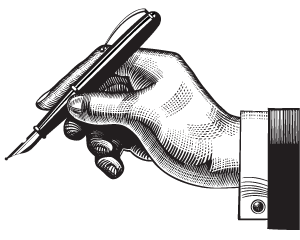Writing on the Job: Are You Asking Too Much?
 Ever heard of the actor’s nightmare? The term is used to describe a common stress dream in which you find yourself on stage without having memorized your lines or even knowing which play is being performed. Or perhaps you realize you’re late for the final exam in a class you don’t remember having attended.
Ever heard of the actor’s nightmare? The term is used to describe a common stress dream in which you find yourself on stage without having memorized your lines or even knowing which play is being performed. Or perhaps you realize you’re late for the final exam in a class you don’t remember having attended.
Or you’re at work and need to write an important deliverable, but you’ve never been properly trained in effective writing.
Unfortunately, that last scenario is no nightmare. It’s the frightening reality for many business, science, and tech professionals and for their employers.
The essential disconnect
According to a report from The National Commission on Writing, which surveyed more than 100 U.S. businesses, strong writing is a “threshold skill” that professionals need if they hope to be hired or promoted. Writing is vital to communication with peers and clients, be it through emails, reports, proposals, technical manuals, or scientific documentation. Yet today’s graduates are less equipped to write well than ever before.
 Over the past few decades, emphasis in higher education has shifted from “basic” skills, like writing, to technical proficiency. The proliferation of texting and other shorthand means of communication has molded a generation that is habituated to writing in one-liners and creating and consuming information in short sound bites. And according to an article in The Atlantic, easy access to the Internet and email means that many university students are farming out the editing and writing of their essays, papers, and dissertations that once guaranteed a certain level of capability in graduates.
Over the past few decades, emphasis in higher education has shifted from “basic” skills, like writing, to technical proficiency. The proliferation of texting and other shorthand means of communication has molded a generation that is habituated to writing in one-liners and creating and consuming information in short sound bites. And according to an article in The Atlantic, easy access to the Internet and email means that many university students are farming out the editing and writing of their essays, papers, and dissertations that once guaranteed a certain level of capability in graduates.
Even employees who took writing seriously in college often lack the skills to write the type of content that their businesses need and demand. Essay and academic writing tends to encourage flowery speech and a different organizational style than is necessary when creating vital and concise business, technical, or scientific writing.
Many employees don’t even realize their writing skills are subpar. As a business leader, you’re likely to find yourself frustrated by this disconnect. Poor writing can cause procrastination, leading to bottlenecks and missed deadlines. It can create miscommunication and escalate tension. And it can translate into managers and supervisors ending up having to edit or polish the staff’s writing as well as failed proposals, confused clients, and angry customers.
[section]To learn more about Hurley Write’s customized, onsite technical, scientific, or business writing workshops, webinars, or online classes, contact us at t 877‑24‑WRITE (249-7483), visit our website, or email us.[/section]
Unfortunately, this problem won’t resolve itself. Although many leaders expect good writing, few have the in-house resources to train existing employees or help them evaluate which specific skills are lacking.
What can you do about this deficit? The first step is understanding that it exists. The second is acknowledging the potential adverse business consequences and the importance of addressing the problem. The third is making the commitment to allocate resources to provide writing training to your employees.
But how can you train professionals who don’t have the time or interest in improving their writing? We’ll discuss your options, and stumbling blocks, in our next post.


